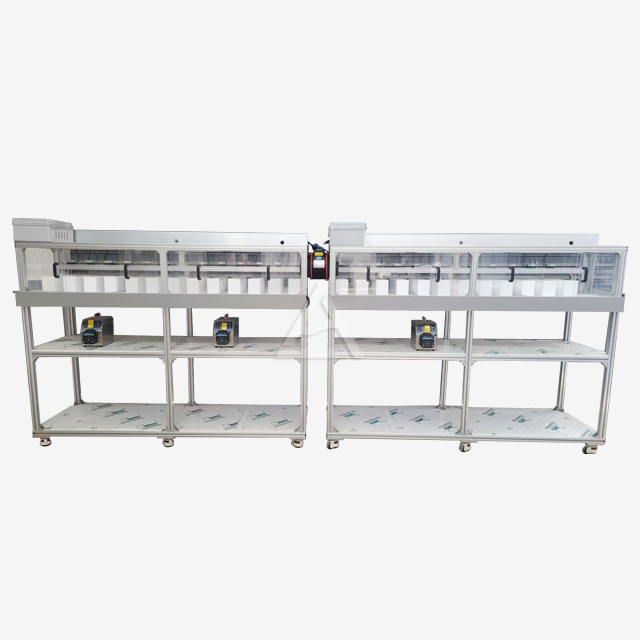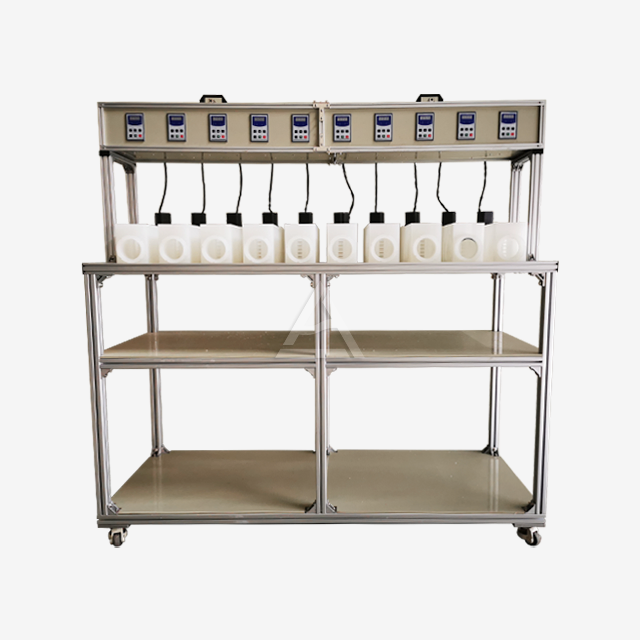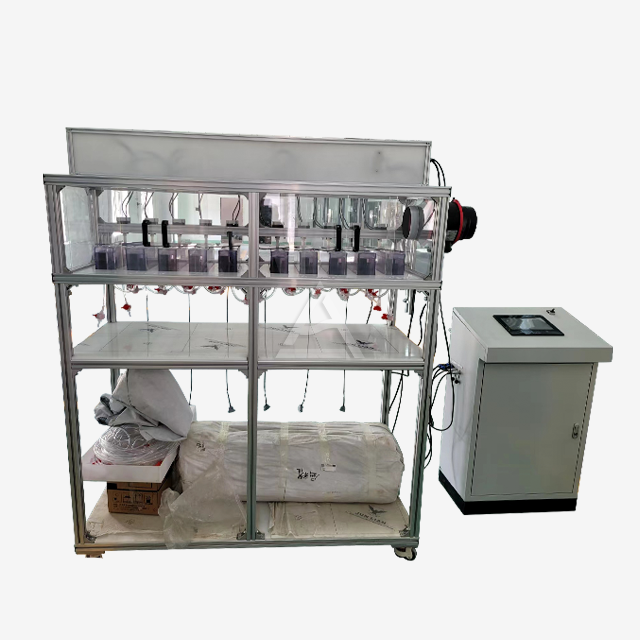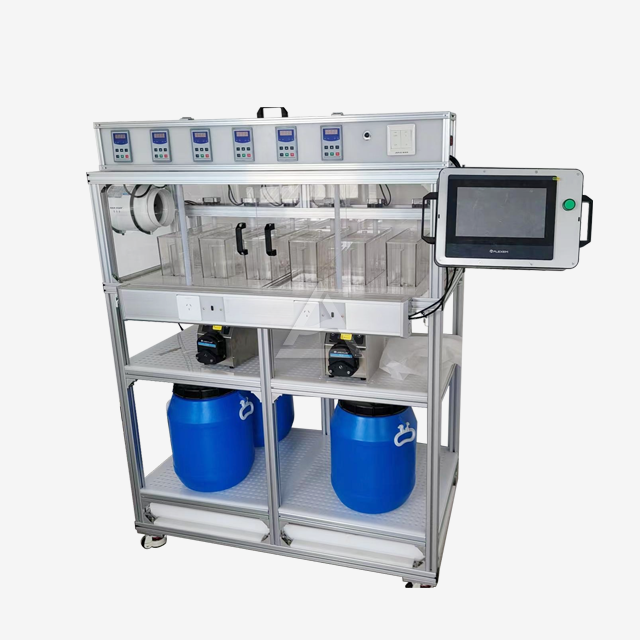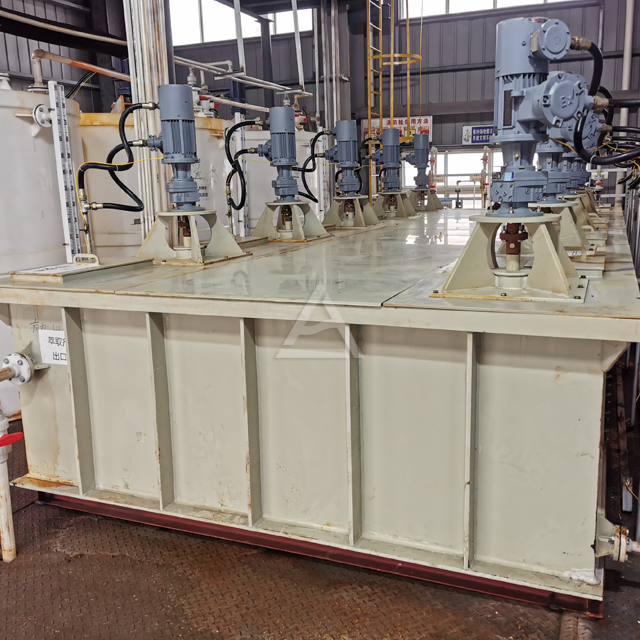Understanding Lab Scale Mixer Settler Technology
Core Components and Design Principles
Lab scale mixer settlers consist of two main sections: the mixer, where immiscible liquids are agitated to promote mass transfer, and the settler, where gravity separation occurs. Key components include:
- Mixing chamber with adjustable impeller
- Settling chamber with baffles and weirs
- Inlet and outlet ports for each phase
- Optional sensors for pH, temperature, and interface level monitoring
The design focuses on maximizing contact between phases while ensuring clean separation. Advanced models feature modular construction, allowing researchers to adjust the number of stages for multi-step extractions.
Material Selection for Chemical Compatibility
Choosing the right materials for your lab scale mixer settler is crucial for ensuring experiment integrity and longevity of the equipment. Common options include:
- PTFE (Polytetrafluoroethylene) for extreme chemical resistance
- Borosilicate glass for visual monitoring and inertness
- 316L stainless steel for durability and moderate chemical resistance
- PEEK (Polyether ether ketone) for high-temperature applications
Consider the nature of your solvents and target compounds when selecting materials to prevent contamination or degradation of components.
Scalability and Process Simulation
One of the key advantages of lab scale mixer settlers is their ability to simulate larger industrial processes. By maintaining geometric and dynamic similarity, researchers can:
- Predict extraction efficiencies at different scales
- Optimize operating parameters before costly pilot plant trials
- Develop robust scale-up methodologies for seamless technology transfer
Modern computational fluid dynamics (CFD) tools can complement experimental data, providing insights into mixing patterns and mass transfer phenomena that are difficult to observe directly.

Optimizing Operational Parameters for Enhanced Performance
Mixing Dynamics and Impeller Selection
Effective mixing is the cornerstone of successful extraction in lab scale mixer settlers. Key considerations include:
- Impeller design: Radial vs. axial flow patterns
- Rotational speed: Balancing mass transfer with emulsion formation
- Power input: Ensuring sufficient energy for droplet breakup without excessive shear
Advanced impeller designs, such as fractal impellers or combined radial-axial systems, can improve mixing efficiency while minimizing power consumption. Researchers should experiment with different configurations to find the optimal balance for their specific application.
Residence Time and Phase Ratio Optimization
The time liquids spend in each section of the mixer settler significantly impacts extraction performance. Factors to consider include:
- Mixer residence time: Allowing sufficient contact for mass transfer
- Settler residence time: Ensuring complete phase separation
- Phase ratio: Adjusting organic to aqueous ratios for optimal extraction
Implementing variable weir heights and adjustable baffles allows researchers to fine-tune these parameters. Data logging and real-time monitoring help identify the sweet spot for maximum extraction efficiency while minimizing solvent usage.
Temperature Control and Interface Stability
Many extraction processes are temperature-sensitive, making precise thermal management crucial. Consider:
- Jacketed designs for uniform temperature distribution
- PID-controlled heating/cooling systems for rapid stabilization
- Interface level sensors to maintain phase separation
Stable interfaces prevent entrainment and ensure consistent extraction performance. Advanced lab scale mixer settlers may incorporate automated interface control systems, adjusting weir heights or flow rates to maintain optimal separation.

Advanced Applications and Future Trends in Mixer Settler Technology
Integration with Online Analytics
The future of lab scale mixer settlers lies in their integration with real-time analytical tools. Emerging technologies include:
- In-situ spectroscopic probes for concentration monitoring
- Microfluidic sampling systems for automated analysis
- Machine learning algorithms for predictive process control
These advancements allow researchers to gain unprecedented insights into extraction kinetics and optimize processes on the fly, significantly reducing development timelines.
Sustainable Extraction Processes
As environmental concerns grow, lab scale mixer settlers are being used to develop greener extraction techniques:
- Ionic liquid-based extractions for reduced VOC emissions
- Biobased solvents derived from renewable resources
- Intensified processes for minimized waste generation
Researchers are leveraging these compact systems to explore novel, eco-friendly separation methods that can revolutionize industrial practices.
Miniaturization and High-Throughput Screening
The trend towards miniaturization continues to push the boundaries of mixer settler technology:
- Microfluidic mixer settlers for ultra-low volume experiments
- Parallel arrays for high-throughput solvent screening
- 3D-printed custom designs for specialized applications
These innovations enable researchers to rapidly prototype and optimize extraction processes, accelerating the development of new materials and pharmaceuticals.

Conclusion
Optimizing lab scale mixer settlers is a multifaceted endeavor that requires a deep understanding of fluid dynamics, mass transfer principles, and material science. By carefully selecting materials, fine-tuning operational parameters, and leveraging cutting-edge technologies, researchers can unlock the full potential of these versatile devices. As we move towards more sustainable and efficient separation processes, the role of lab scale mixer settlers in driving innovation across industries will only continue to grow. Their ability to bridge the gap between theoretical models and industrial-scale operations makes them an indispensable tool in the modern research laboratory.
Contact Us
Ready to elevate your research with state-of-the-art lab scale mixer settlers? Cuiyan Technology offers customized solutions tailored to your specific extraction challenges. From rare earth purification to advanced wastewater treatment, our expert team can help you optimize your processes for maximum efficiency and precision. Contact us today at wangzhijun@cuiyan-tec.com to discover how our innovative technology can transform your research outcomes.




